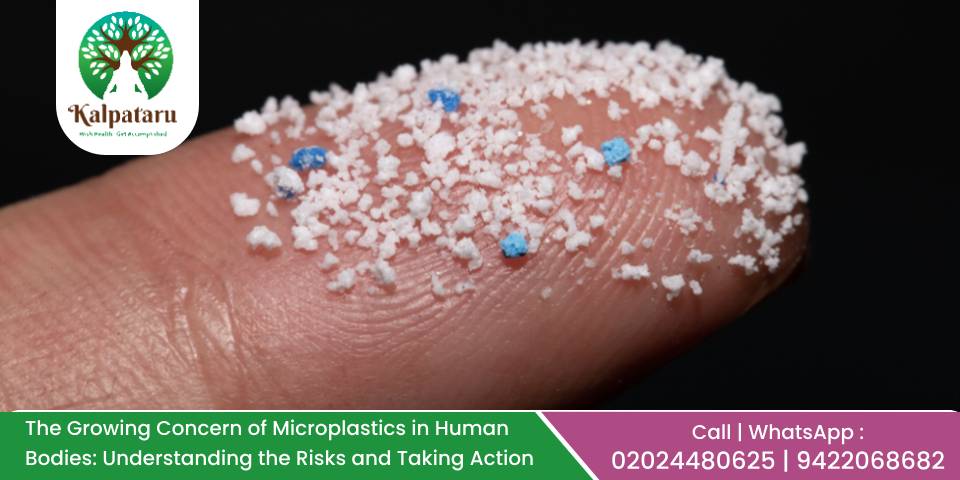Microplastics, minuscule plastic particles less than 5 millimeters in size, have infiltrated every corner of our environment, from the depths of oceans to mountain peaks, and even into our food and water supplies. However, perhaps the most alarming discovery is finding these microplastics within our bodies. While the long-term health effects are still being researched, there are concerning indications that these tiny pollutants could pose significant risks to human health.
Plastic Contamination in Everyday Items:
It has become increasingly common to use plastic in external celebrations and parties, where plastic serving plates are prevalent. When hot items are served on these plates, a portion of the plastic melts into the food. Additionally, various types of cold drinks are often stored in plastic bottles, which need to be continuously kept in a cold chain to maintain their freshness. However, sometimes these bottles are mishandled, exposed to heat, and release microplastic particles, including Bisphenol A, a molecule considered highly carcinogenic due to its cancer-causing properties, awareness about this issue is crucial.
You may notice that even tea cups, which appear to be made of paper, often have a plastic laminate and coating inside, which can contaminate the beverage. Therefore, efforts should be made to encourage individuals, particularly students in schools, to carry their water in metal bottles instead of plastic ones. Repeated use of plastic bottles contributes to an increase in microplastic levels in the body over time.
For more information and treatment modalities watch our informative video
Understanding the Risks:
- Exposure to Harmful Chemicals: Microplastics have a remarkable ability to absorb and accumulate toxic substances such as heavy metals, pesticides, and industrial chemicals from their surroundings. When ingested, these microplastics release these toxins into our bodies, potentially leading to a range of health complications.
- Cellular Disruption: Studies have shown that microplastics can disrupt human cell function, leading to inflammation and even cell death. The full extent of these cellular disruptions and their long-term consequences remain to be fully understood.
- Endocrine Disruption: Certain plastics contain chemicals that can mimic hormones in the body, interfering with hormonal processes and potentially impacting development, metabolism, and reproduction.
- Increased Disease Risk: While still under investigation, there are concerns that microplastics may contribute to the development of chronic diseases such as cancer, obesity, and diabetes.
How Microplastics Enter Our Bodies:
- Microplastics can infiltrate our bodies through various pathways:
- Ingestion: The primary route of exposure, microplastics can enter our bodies through contaminated food and water sources, leaching from plastic packaging and accumulating in seafood.
- Inhalation: Microplastics present in airborne dust, particularly in areas with high plastic pollution, can be breathed in.
- Skin Absorption: While less significant, microplastics may enter the body through the skin.
Navigating Uncertainties and Taking Action:
While research into the health impacts of microplastics is ongoing, there are proactive steps we can take to minimize exposure and protect our health:
- Reduce Plastic Use: Opt for reusable alternatives to reduce plastic consumption and subsequent microplastic contamination.
- Support Legislation: Advocate for policies that regulate plastic production and promote responsible plastic waste management.
- Stay Informed: Keep abreast of the latest scientific findings regarding microplastics and their potential health implications.
Conclusion:
The pervasive presence of microplastics demands a cautious approach to protect human health. While uncertainties remain, proactive measures such as reducing plastic usage and supporting legislative actions can mitigate risks. By staying informed and taking action, we can minimize exposure to microplastics and safeguard our health amid this environmental challenge.
Dr. Manoj Deshpande and Dr. Aparna Deshpande at Kalpataru Ayurvediya Chikitsalaya™ Clinic provide the best Ayurvedic Treatment for Psoriasis & various diseases in Pune, Maharashtra. For more information about our comprehensive treatment options, or to request an appointment with the best Ayurvedic Doctor in Pune, call +919422068682 / +919764837167 / 020-24480625 or Click on Book an Appointment.

